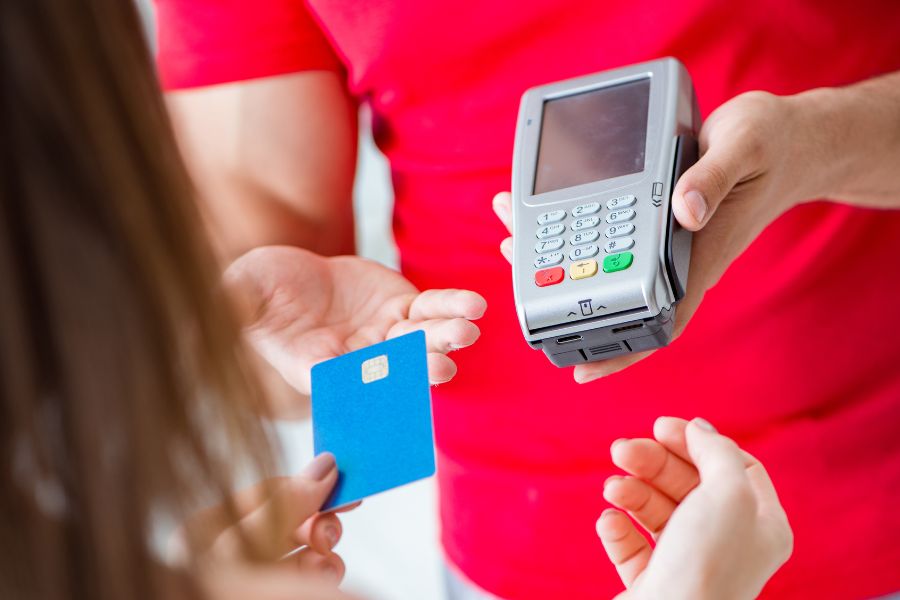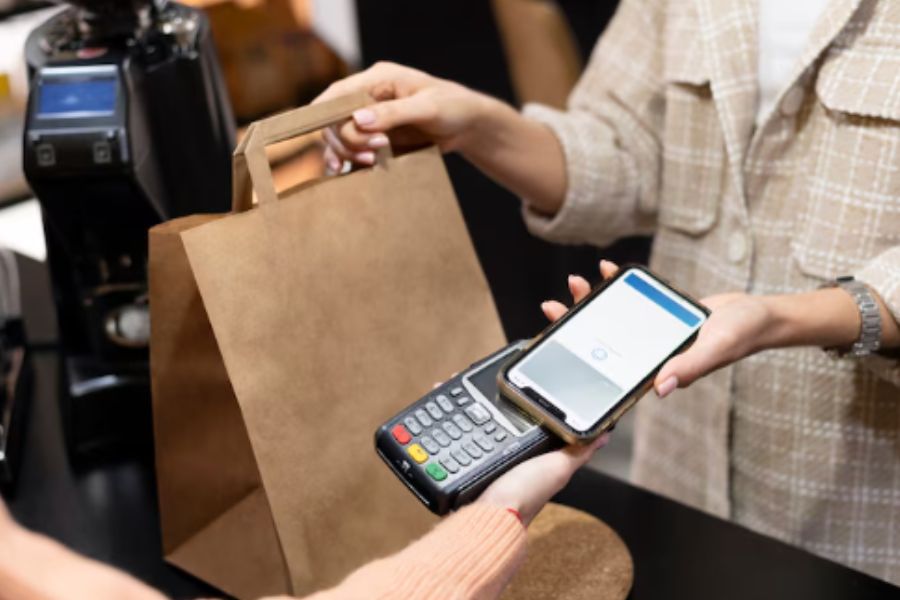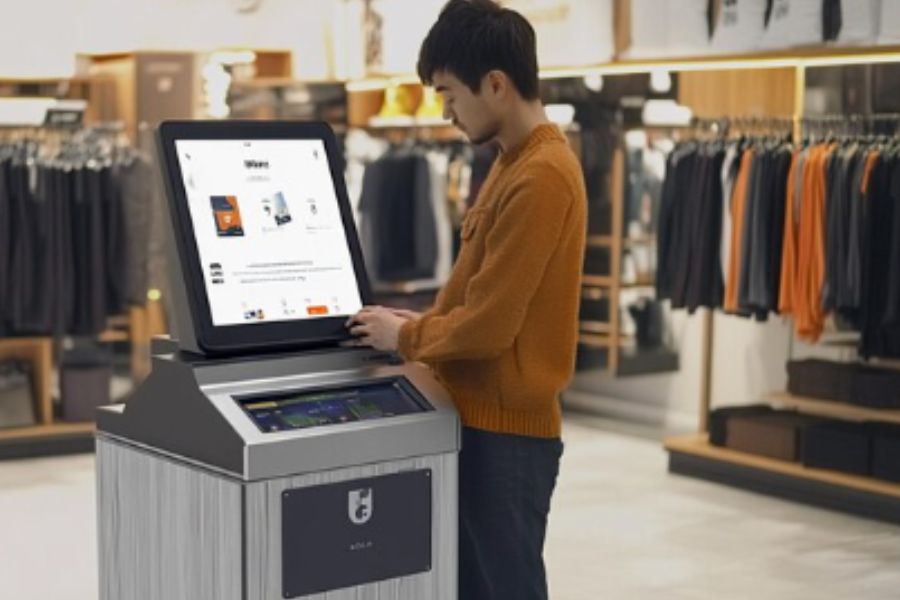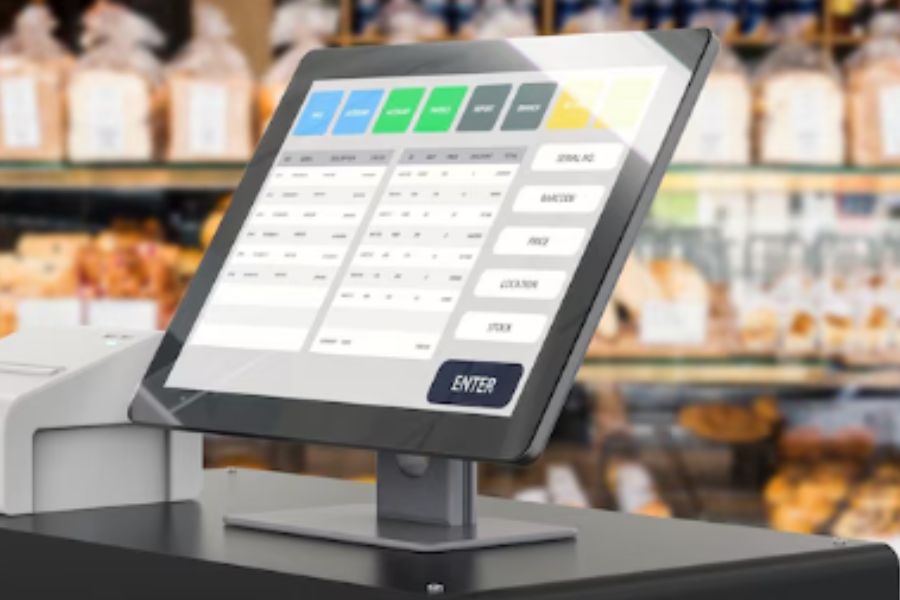In today’s fast-paced retail world, customers expect seamless shopping experiences across all channels. If your business can’t deliver, you risk losing sales and customer loyalty. A POS with ecommerce capabilities is the game-changer you need to bridge online effortlessly and in-store experiences.
In this article, we will discover how a POS with ecommerce capabilities can transform your business operations and drive unmatched customer satisfaction.
Highlight:
- By synchronizing online and in-store operations, POS systems with ecommerce capabilities provide real-time inventory updates, flexible payment options, and personalized shopping experiences.
- Businesses often face difficulties such as data synchronization errors, compatibility issues, and significant initial setup costs when merging POS and ecommerce platforms.
Key Features of POS Systems with Ecommerce Capabilities
POS with ecommerce capabilities has become indispensable for modern businesses, enabling seamless online and offline operations. Below are the key features that make such systems effective for boosting efficiency and enhancing customer experience.
- Omnichannel Integration: A robust POS system supports omnichannel integration, ensuring a unified shopping experience across physical stores, online platforms, and mobile apps. The integration allows customers to shop, return, or exchange products effortlessly, regardless of the channel used.
- Inventory Management: Advanced inventory management features enable real-time stock tracking across multiple locations. Businesses can optimize stock levels, prevent overstocking or understocking, and easily manage product availability both in-store and online.
- Customer Management: POS systems with ecommerce capabilities include customer management tools to store and analyze customer data, such as purchase history and preferences.
- Payment Processing: An integrated payment processing feature allows businesses to accept various payment methods, including credit/debit cards, mobile wallets, and online payments. Secure and efficient processing ensures a smooth checkout experience for customers.
- Sales Analytics & Reporting: Detailed analytics and reporting tools provide insights into sales performance, customer behavior, and inventory trends. These insights help businesses make data-driven decisions and identify growth opportunities.
- Product Catalog Management: Detailed analytics and reporting tools provide insights into sales performance, customer behavior, and inventory trends. These insights help businesses make data-driven decisions and identify growth opportunities.
- Multi-Device Support: Modern POS systems offer multi-device support, enabling businesses to operate on desktops, tablets, or smartphones. This flexibility enhances mobility and ensures efficient operations in any retail environment.
- Marketing & Promotions: Integrated marketing tools allow businesses to create, manage, and track promotions, discounts, and loyalty programs. These features help drive customer engagement and boost sales.
- Customer Support Tools: POS systems with ecommerce capabilities often include customer support tools like chat integrations, ticketing systems, and automated responses. These features improve post-sale support and enhance customer satisfaction.
- Shipping & Fulfillment Integration: Seamless integration with shipping and fulfillment services streamlines order processing, tracking, and delivery. Businesses can efficiently handle shipping logistics and provide customers with real-time updates.
- Security & Compliance: Ensuring data security and compliance with industry standards is a top priority. Features like end-to-end encryption, tokenization, and PCI-DSS compliance safeguard sensitive customer and payment data.
- Mobile POS Capabilities: Mobile POS systems enable businesses to process transactions on the go. This is particularly beneficial for pop-up shops, trade shows, and businesses with mobile sales teams, offering flexibility and enhanced customer experience.
How POS with Ecommerce Transforms Customer Experience
Integrating POS with ecommerce platforms is no longer a luxury but a necessity for businesses aiming to meet evolving customer expectations. This seamless integration transforms the customer experience, ensuring convenience, efficiency, and satisfaction across all touchpoints.
Below, we explore how this transformation occurs and its practical implications for businesses and consumers.
Seamless Shopping Across Channels
One of the most significant advantages of integrating POS with ecommerce is enabling customers to shop effortlessly across channels. Customers can browse products online, reserve them, and pick them up in-store (BOPIS – Buy Online, Pick Up In-Store). Similarly, if a product is out of stock in a physical store, the system can immediately check its availability online and arrange delivery.
For example, a 2023 report by BigCommerce reveals that 87% of consumers expect a consistent experience across all shopping channels. Businesses like Target have mastered this with their omnichannel strategy. Integrating their POS system with ecommerce, Target enables real-time inventory tracking and a smooth in-store pickup process, increasing customer satisfaction and loyalty.
Better Customer Interaction and Engagement
Incorporating POS with ecommerce platforms creates new opportunities for businesses to enhance customer interaction and engagement. With collecting and analyzing valuable customer data such as purchase history, preferences, and feedback companies can deliver a highly personalized and interactive shopping experience. This capability not only boosts customer satisfaction but also drives long-term loyalty.
With integrated POS and ecommerce systems, businesses can craft tailored recommendations, promotions, and product suggestions for their customers. For instance, a clothing retailer can analyze purchase history to recommend styles or sizes that align with a customer’s past preferences. Personalized product recommendations are not just appreciated; they lead to measurable results.
Additionally, an integrated system enables businesses to go beyond transactions and create meaningful emotional connections with their customers. For instance, remembering anniversaries, birthdays, or other milestones, brands can send thoughtful messages or rewards that show genuine appreciation. These small gestures can have a big impact on customer retention.
Faster and More Convenient Transactions
An integrated POS and ecommerce system speeds up the checkout process, reducing wait times and ensuring hassle-free transactions. Payment methods are synchronized, enabling customers to use online payment options like digital wallets both in-store and online.
Furthermore, automated processes like inventory updates and order syncing prevent errors, saving time for both businesses and customers.
Among various POS solutions, ConnectPOS stands out for its robust integration capabilities and customer-centric features. Businesses can benefit from:
- Real-time inventory synchronization across physical stores and ecommerce platforms.
- Personalized customer interactions through advanced data analysis and tailored promotions.
- Flexible payment options, allowing customers to use their preferred payment method seamlessly.
- Faster transactions, minimizing checkout time and improving customer satisfaction.
With ConnectPOS, businesses can bridge the gap between online and offline shopping, delivering a truly unified customer experience that meets modern demands. It’s not just a POS solution, it’s a tool to transform your retail business into an omnichannel powerhouse.
Overcoming Challenges of Integrating POS with ecommerce
Integrating a POS with ecommerce platforms can transform a business, but it is not without challenges. From technical hurdles to ensuring that staff can effectively use the system, businesses need to proactively address these issues to unlock the full potential of integration.
Overcoming Technical Barriers
The first challenge businesses face when integrating POS with ecommerce is technical compatibility. Ensuring that the POS system can seamlessly communicate with the ecommerce platform is crucial for data synchronization, inventory updates, and customer management.
To overcome these barriers, businesses must:
- Choose Compatible Solutions: Opt for a POS system, such as ConnectPOS, that offers seamless integrations with popular ecommerce platforms like ConnectPOS, Shopify, and WooCommerce.
- Invest in API Connectivity: APIs (Application Programming Interfaces) act as the bridge between systems, enabling smooth data exchange. A well-implemented API ensures real-time updates for inventory, orders, and sales data.
- Conduct System Testing: Before full implementation, businesses should run thorough tests to identify and resolve issues, ensuring a smooth transition.
Training and Support for Staff
Introducing new technology often leads to a learning curve for staff members. Employees need to be familiar with both the POS system and its integration with the ecommerce platform to ensure efficient operations.
To address this:
- Provide Comprehensive Training: Businesses should offer hands-on training sessions for employees to familiarize them with the system’s features, such as processing orders, managing inventory, and handling customer data.
- Create User Manuals: Having easy-to-understand guides and step-by-step instructions can help staff troubleshoot minor issues independently.
- Leverage Vendor Support: Rely on the POS vendor’s customer support team for guidance during and after implementation. For instance, ConnectPOS offers 24/7 customer support, ensuring that businesses can resolve any issues promptly.
FAQs: POS with Ecommerce
- Can POS systems with ecommerce capabilities work for small businesses?
Yes, modern POS systems like ConnectPOS are designed to cater to businesses of all sizes. They provide cost-effective solutions that integrate seamlessly with ecommerce platforms, offering features such as real-time inventory tracking, payment processing, and customer management, making them ideal for small businesses looking to scale efficiently.
- How secure are payment transactions with modern POS systems?
Modern POS systems prioritize security with advanced features like end-to-end encryption, tokenization, and compliance with standards like PCI DSS. Solutions like ConnectPOS ensure that both online and in-store transactions are highly secure, protecting customer data and minimizing risks of fraud or breaches
- How can POS systems help businesses personalize customer interactions?
POS systems integrated with ecommerce platforms collect valuable customer data, including purchase history and preferences. This allows businesses to create tailored promotions, recommend products, and offer loyalty rewards.
Conclusion
Integrating POS with ecommerce capabilities has transformed the retail landscape, enabling businesses to deliver seamless, efficient, and personalized experiences for their customers. Enhanced customer engagement, faster transactions, and smoother operations are just some of the benefits.
To take your business to the next level, ConnectPOS offers an all-in-one solution that integrates seamlessly with your ecommerce platform. Don’t miss the opportunity to optimize your operations, boost customer satisfaction, and drive growth. Contact us today to discover how ConnectPOS can help revolutionize your business.



